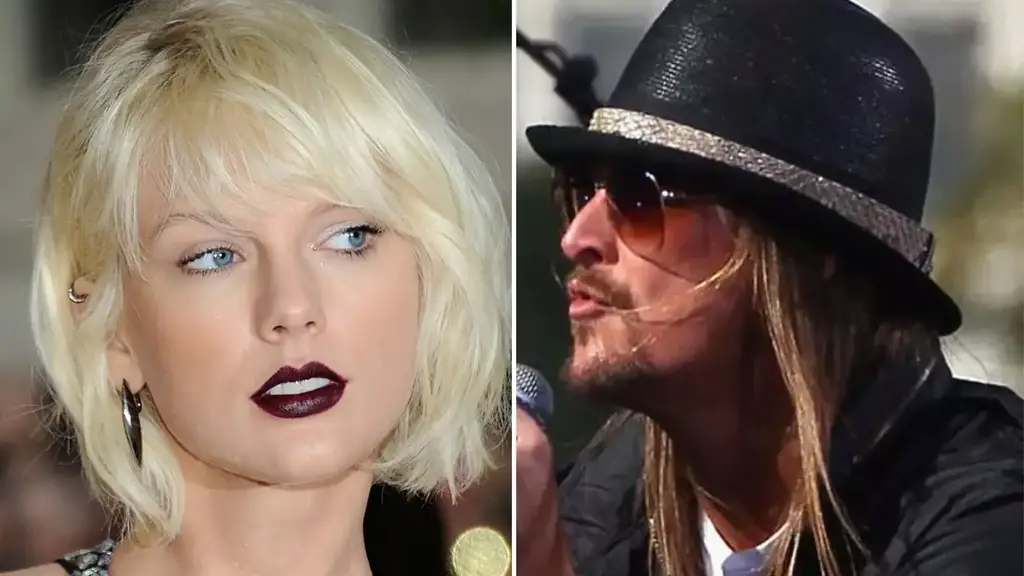In a music industry that’s often rife with surprising alliances and genre-crossing collaborations, the idea of a joint tour between Kid Rock and Taylor Swift might have seemed outlandish to some but intriguing to others. However, the rocker swiftly dispelled any notion of such a pairing, making his opinions known in his typical no-holds-barred style.

Kid Rock recently sparked controversy by declaring, “We need more Toby Keiths and less Taylor Swifts,” expressing his dissatisfaction with the direction country music has taken. His remarks highlight the growing divide between traditional country music and the more mainstream, pop-infused styles represented by artists like Taylor Swift.
Kid Rock, known for blending rock, country, and hip-hop, has built a career on unapologetic, heartland-rooted storytelling, with albums like Devil Without a Cause and Born Free resonating with fans who value authenticity. In contrast, Taylor Swift, with her genre-bending success and massive global following, embodies the shift toward a pop-oriented version of country music that Kid Rock and many traditionalists find inauthentic.

The contrast between Kid Rock’s admiration for country legend Toby Keith and his critique of Swift underscores his belief in preserving the roots of country music. Toby Keith’s music, filled with themes of patriotism and small-town values, aligns with Kid Rock’s vision for the genre, whereas Swift’s evolution into pop and her embrace of a broader, market-driven sound is seen by him as a departure from true country spirit.
Kid Rock’s refusal to collaborate with Swift is more than a rejection of her style; it’s a stand against the commercialization of country music. He advocates for artists who challenge norms and maintain a raw, gritty authenticity, rather than those who cater to mainstream trends. This cultural divide is emblematic of the larger debates about authenticity and identity in the entertainment industry.

While Swift has successfully navigated multiple genres, from country to pop to indie, Kid Rock remains firm in his belief that country music must stay true to its roots. His stance raises critical questions about the future of country music and whether both traditional and modern interpretations can coexist.
As the conversation about the evolution of country music continues, Kid Rock’s sharp remarks against Taylor Swift reflect the ongoing tension between staying true to tradition and embracing change. This debate will shape the industry’s future as fans and artists alike grapple with what defines authentic country music in today’s world.





